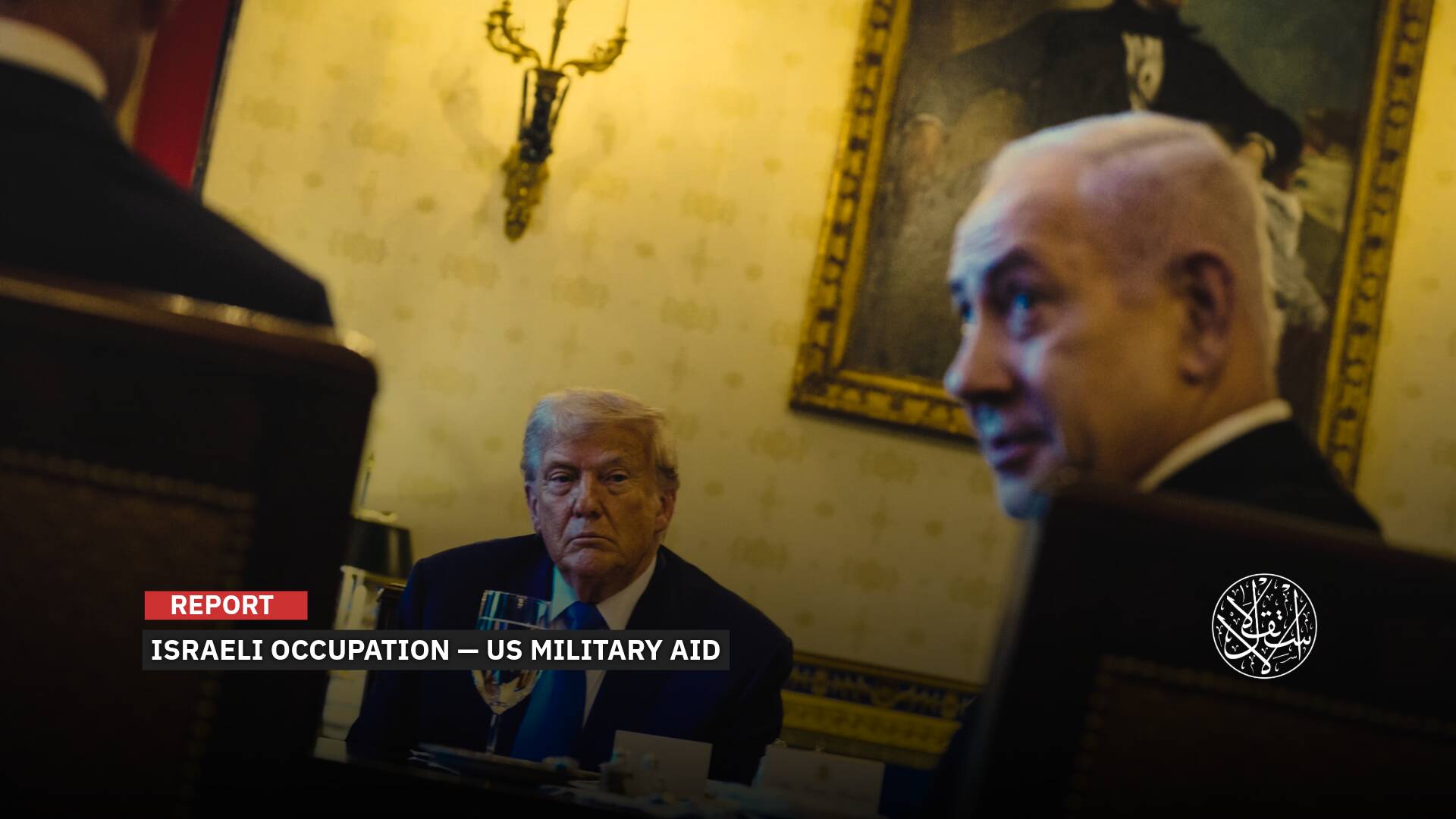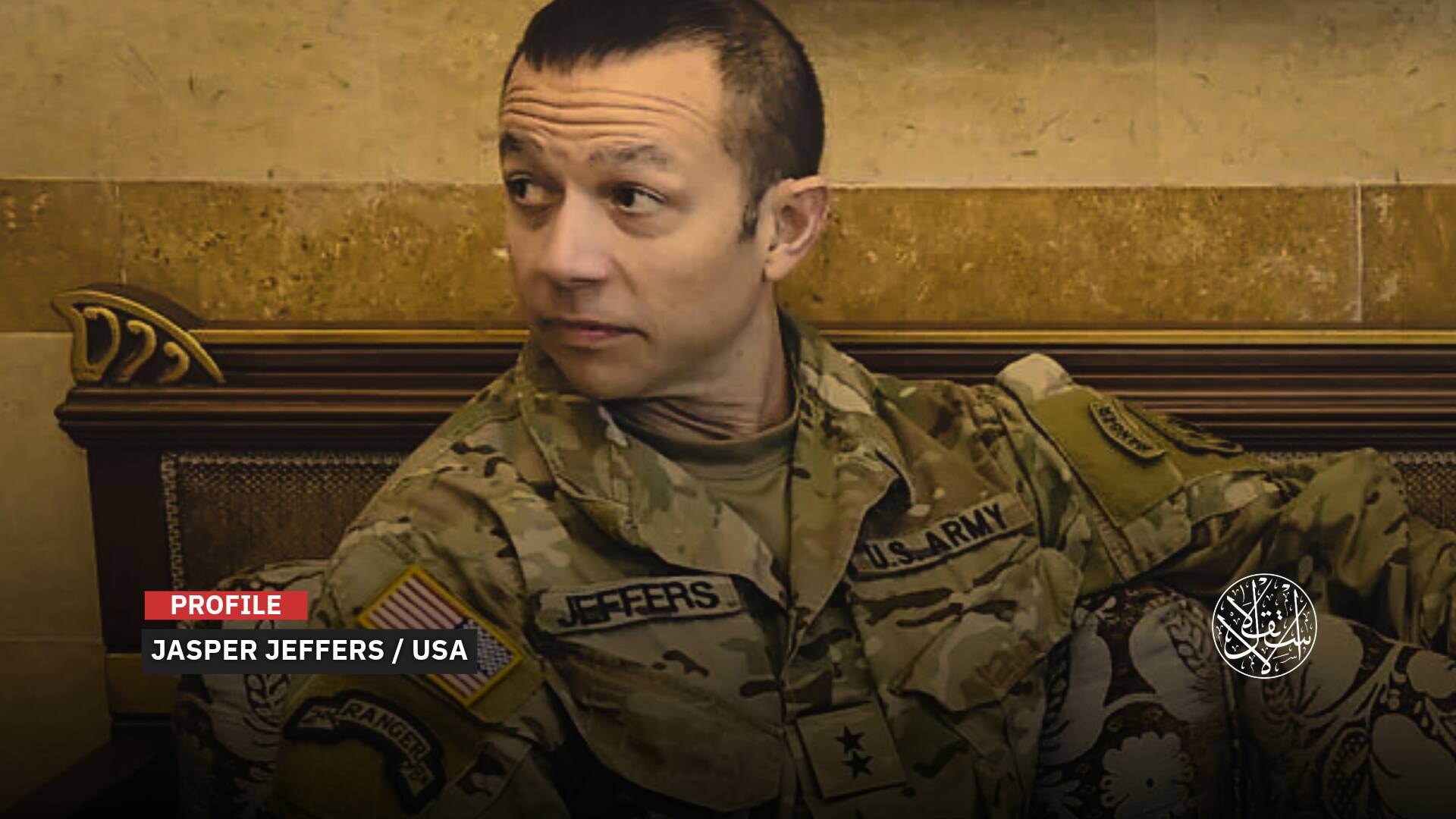After Al-Assad’s Fall: Why Are Iraqi Militias Concentrating Along the Saudi Border?
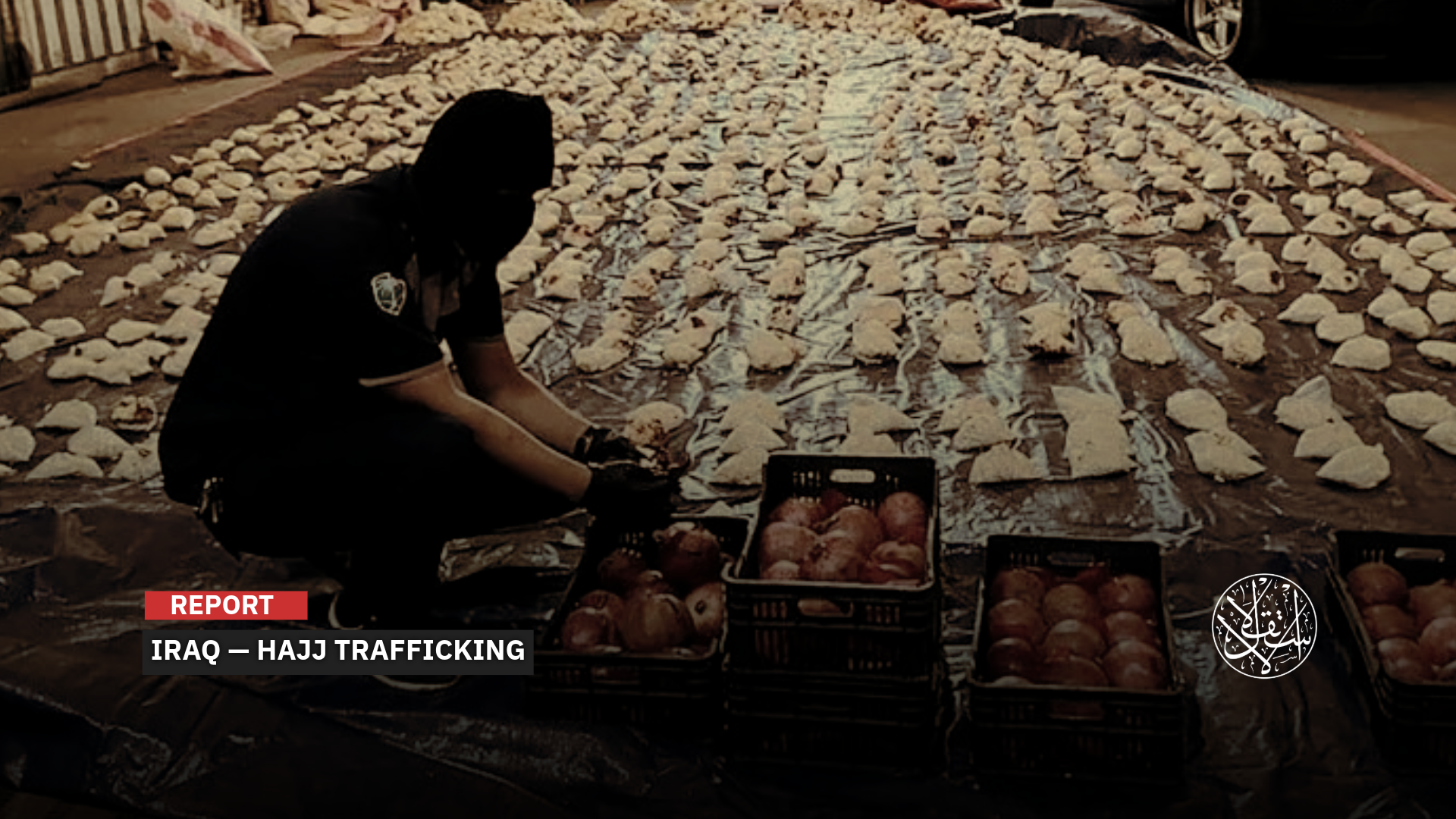
These incidents are likely to cast a shadow over Iraq–Saudi Arabia relations.
Despite the major importance of the Arar border crossing between Iraq and Saudi Arabia, the smuggling of narcotics into the kingdom is causing concern among Iraqis about its potential impact on the flow of overland Hajj and Umrah convoys, which resumed after a 30-year hiatus.
In early September 2022, Iraqi authorities announced the reopening of the Arar crossing to pilgrims, sending off the first overland convoy after more than three decades of suspension.
The move came after extensive efforts by Iraq’s government-run Hajj and Umrah Commission in coordination with their Saudi counterparts.
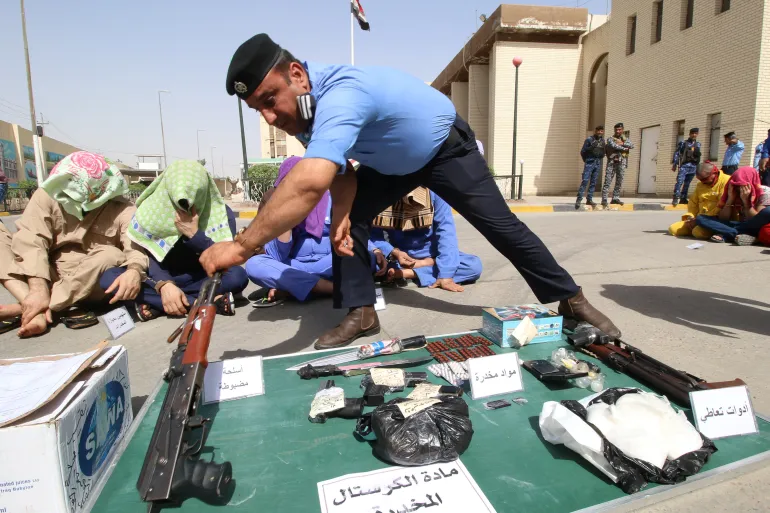
Rising Smuggling
Perhaps the most recent drug bust was on September 13, 2025, when Saudi authorities discovered narcotics hidden inside the luggage of two Iraqi pilgrims.
The pair were immediately arrested, and traffic through the Arar border crossing was halted.
In the wake of the incident, Saudi authorities carried out strict inspection measures on all buses arriving from Iraq. The process lasted more than 18 hours, with passengers subjected to thorough searches of all their belongings, and some kept off the buses for hours before being allowed to cross.
Two days later, Iraq’s Interior Ministry released details of the operation, announcing that an attempt to smuggle 142 kilograms of crystal meth into Saudi Arabia had been foiled thanks to precise intelligence information.
In a September 15 statement, the ministry said, “The Directorate General for Narcotics Affairs received the information through extraordinary efforts by the Erbil and Sulaymaniyah Anti-Narcotics Directorates, which was then passed to the Saudi anti-narcotics authority. The latter managed to seize the quantity and arrest the two Iraqi suspects, who were traveling by bus in Medina.”
According to the ministry’s statement, “The operation reflects the level of security and intelligence coordination between Baghdad and Riyadh in confronting smuggling networks that seek to exploit every possible means to transport drugs across the border.”
On the same day, Baghdad Today quoted Colonel Salam Abdel Khaleq, spokesperson for the Kurdistan Region’s Asayish forces, as saying that “the seized drugs were valued at around $1.3 million and had been hidden on a bus operated by a private Hajj and Umrah transport company.”
Abdel Khaleq stressed that the Sulaymaniyah Anti-Narcotics Directorate played a pivotal role in uncovering the network, noting that “Saudi and Iraqi authorities requested the participation of Sulaymaniyah experts in the investigation because of their experience in dealing with drug trafficking networks.”
This operation is considered one of the biggest blows dealt to drug smuggling networks in the region in recent years, casting a spotlight on the dangers of exploiting Hajj and Umrah trips as cover for trafficking narcotics.
Saudi law classifies drug and alcohol smuggling as major crimes warranting severe punishment, with sentences that can include the death penalty or life imprisonment depending on the quantity seized and the nature of the offense.
Past legal precedents in the kingdom show that death sentences have been carried out against foreign nationals of various nationalities in recent years for attempting to bring drugs through land border crossings and airports, while others have received lengthy prison terms and heavy fines.
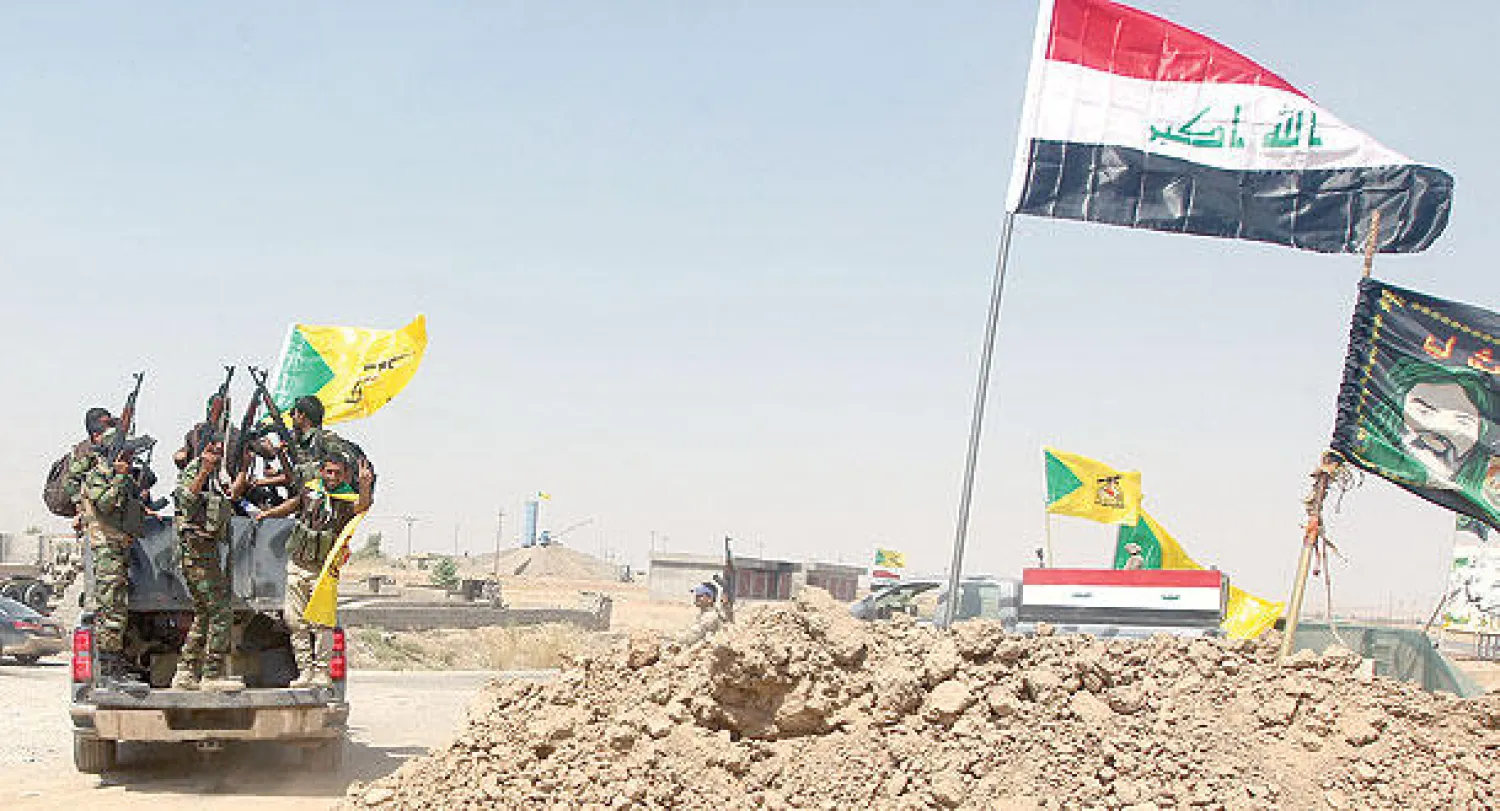
Recouping Losses
Regarding the reasons behind the rise in drug smuggling from Iraq to Saudi Arabia and those responsible, security expert Falah al-Ani said that “the trade in narcotics and prohibited substances to the kingdom is controlled by armed factions.”
Al-Ani told Iraq’s al-aalem al-Jadeed newspaper on September 20 that “the armed factions cannot appear openly in the drug trade to Saudi Arabia, so they have placed intermediaries and traders, all protected by these factions, while the financial proceeds go back to them.”
The Iraqi security expert warned that “the presence of armed factions along the border with Saudi Arabia threatens economic relations with Riyadh and discourages investment by companies and traders within Iraqi territory.”
“The Iraqi government and Prime Minister Mohammed Shia’ al-Sudani to take action on this issue, remove these factions, and hand over security responsibilities at all border crossings to the official state forces,” al-Ani said.
“The factions are seeking to generate revenue and make up for financial losses caused by the collapse of their drug trade with Syria. They set up security checkpoints and impose tolls along the road connecting Iraq and Jordan.”
According to al-Ani, “these factions also levy taxes on traders, farmers, and property owners, while maintaining a presence along the border with Saudi Arabia, and are behind the trafficking of crystal meth and other banned substances.”
In a related development, Iraq’s al-Jibal platform reported on September 20, citing an unnamed security source, that “a force from the armed factions is on the move, specifically in the area stretching between the Jordanian and Saudi borders.”
The source pointed out that “this force is conducting operations in the areas of Al-Walid, Rutbah, Al-Nukhayb, and Arar, establishing military barracks and installing monitoring systems near the border crossing with Saudi Arabia, as well as setting up headquarters there.”
According to the security source, the armed factions aim to gain full control over the border triangle linking Iraq with Saudi Arabia, Jordan, and Syria, and are conducting joint patrols along the road connecting Akashat, Rutbah, and Al-Nukhayb.
The platform’s information indicated that “after losing Syria following the fall of Bashar al-Assad’s regime, the armed factions suffered significant financial losses that had previously been generated through the drug trade.”
It added that “while the armed factions try to remain hidden behind drug traders, in reality they are the ones protecting these traders and are responsible for the illicit trade, driven by an urgent need for money.”
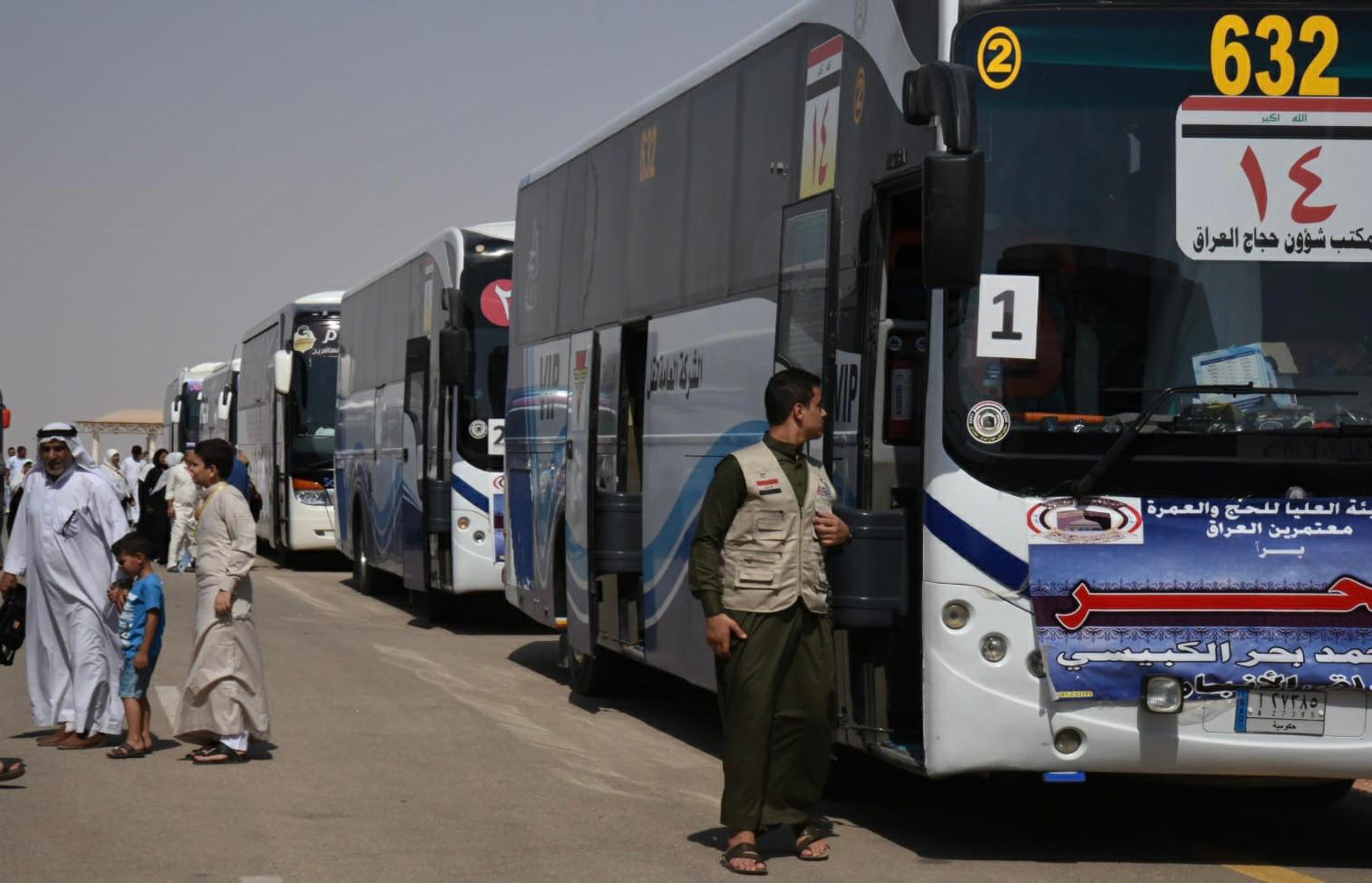
Potential Repercussions
In a related development, an Iraqi Hajj and Umrah operator told Al-Estiklal, speaking on condition of anonymity, that “this year’s 2025 Hajj season saw Iraqi mission staff arrested by Saudi security after attempting to sell drugs they had smuggled into the kingdom.”
“The incident caused major disruption to Iraqi Hajj convoys and delays due to the subsequent inspections of all buses carrying pilgrims overland through the Arar border crossing.”
“These incidents will inevitably have a negative impact on relations between the two countries, as they reflect weaknesses in Iraqi procedures. If measures are not taken to prevent such operations from recurring, Saudi authorities may take action to protect their security by reducing the number of overland convoys or even halting them altogether,” the operator added.
Data from Iraq’s Interior Ministry show that the drug issue has expanded alarmingly in recent years. In 2025 alone, more than 2,600 people were convicted in trafficking and drug use cases, while official statistics indicate that three tons of Captagon and crystal meth were seized.
Drugs remain one of the biggest challenges facing Iraqi society, particularly as their trade has expanded dangerously in recent years, turning Iraq into a transit route for these substances to several Arab countries.
The price of one gram of crystal meth ranges between 15,000 and 25,000 dinars ($11.50 to $19), while a single Captagon pill costs around $2, with the majority of users aged between 18 and 30.
Since the collapse of Bashar al-Assad’s regime in Syria at the end of 2024, large quantities of Captagon pills have been discovered across various areas, stacked in warehouses or military bases, confirming earlier reports of the former Syrian regime’s role in manufacturing and exporting them worldwide.
The Observatory of Political and Economic Networks, which monitors drug trade in the Arab world, estimated that al-Assad regime earned an average of $2.4 billion annually from this trade between 2020 and 2022, out of a global market worth $5.7 billion.
Iraq is among the countries most affected by the trade in drugs and Captagon. Its borders were previously open to large quantities of pills from Syria, although this flow declined after the fall of al-Assad’s regime, particularly at illicit crossings controlled by Iran-aligned militias.
Sources
- Iraq and Saudi Arabia Arrest International Drug Dealers in Joint Operation [Arabic]
- Saudi Security Arrests Iraqi Hajj Mission Employee Caught Selling Drugs [Arabic]
- Iraq and Saudi Arabia Cooperate… 142 Kg of Drugs Seized and Two Iraqis Arrested [Arabic]
- Iraqi Pilgrims Send Off First Overland Umrah Convoy After More Than 30 Years [Arabic]
- After Syria’s Decline… Arar Becomes a New Gateway for Drug Smuggling [Arabic]
- Saudi Arabia as an Alternative Route for Iraqi Factions in the Drug Trade… An Iranian Desire or an American Plan? [Arabic]



